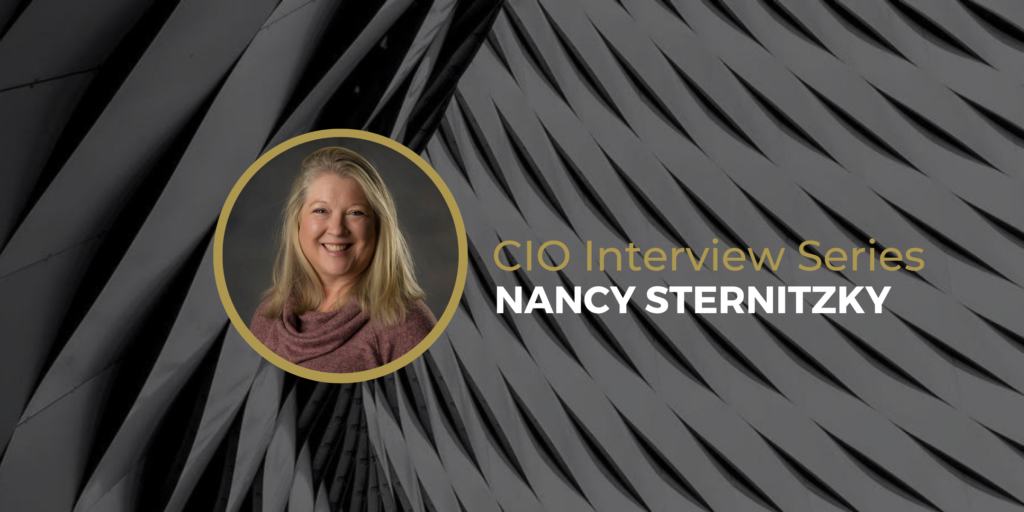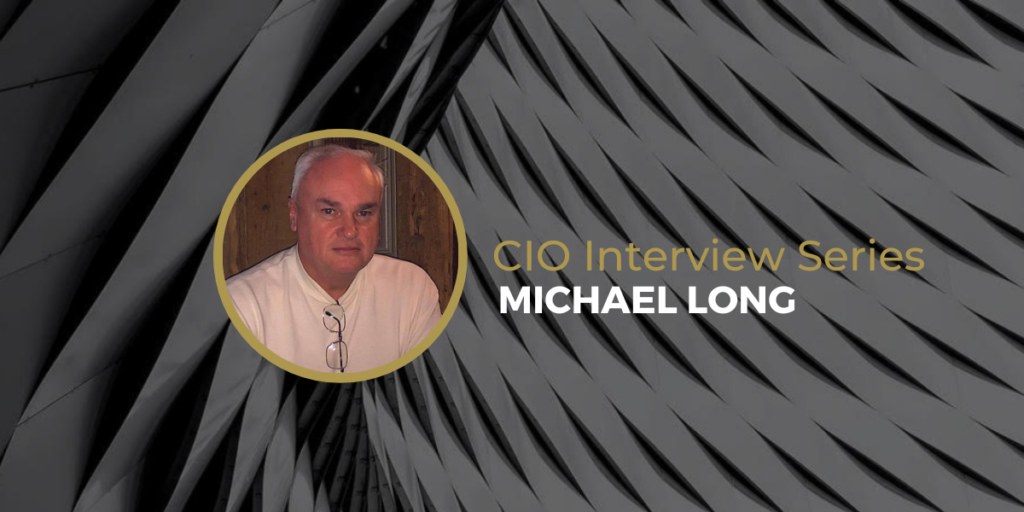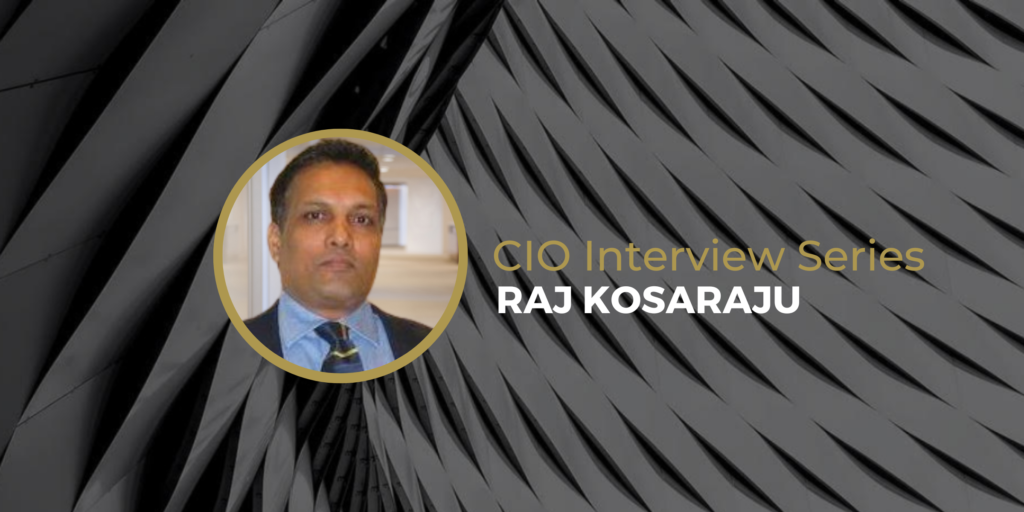Nancy Sternitzky

CIO at Sound Credit Union
Can you please provide a little introduction about yourself
My name is Nancy Sternitzky. I am working at a $2.6 billion dollar credit union located in Tacoma, Washington, as their Chief Information Officer and technology service expert.
What has your journey to your position been like? What path have you taken?
My working life began at an early age, skipping the traditional steps of college or university, in lieu of rising up the ranks of office life in law firms, and finding a passion for the systems that supported them. I ventured into technology in my twenties, starting with phone systems and telecommunication support roles in legal and international shipping. I quickly earned the responsibility for networking, infrastructure, and application delivery, advancing from do-er, to leader in my late 30’s. While challenged regularly as a young woman in the tech field, I have implemented program management, project management, and methodologies for development and testing disciplines throughout my career. In the middle of my career, I added my MBA to my resume and skillset, with a focus on leadership and executive business management. I eventually moved into the not-for-profit sector, embracing credit unions and the cooperative culture, while still serving in information technology. Hundreds of successful implementation and conversion projects later, I have been recruited and hired a number of times for senior executive positions in technology where customer relationships were failing or non-existent. I am proud of my ability to rebuild relationships and trust in my IT teams to deliver and develop the right solutions for our customers. One such role was with the City of Seattle, working with an IT Department of over 700 professionals. My current role allows me executive responsibility to serve as the Chief Information Officer and Chief Digital Officer for Sound Credit Union in Tacoma, WA.
Has it always been your vision to reach the position you’re at? Was your current role part of your vision to become a tech leader?
No, my vision was always to be a servant leader, or even a quiet contributor, preferably in the design and art industries. There is no denying the call of what you are good at, and technology came naturally to me, along with my curious need to always understand why things worked the way they did, and how I could modify or configure them. So, art and design take a back seat to technology and telecommunications. Once I began leading individuals, I was hooked. I never imagined I would run a large division of technologists, but I did believe my strengths were in coaching young professionals who needed the polish and confidence to better serve in their role. The same skills apply to technical staff. I have been fortunate to find organizations that recognize that difference in a tech team and they do not want to settle for order-takers.
Have you had a role model or mentor that has helped you on your journey?
One of my first executive level bosses, the Firm Administrator at one of the largest law firms in the State, took an early interest in me and encouraged me out of my comfort zone. His name was Dale Thibault, and his confidence in me and my abilities gave me autonomy and freedom to make large, technology decisions, and to own the relationships with our vendors and my customers. It was very powerful.
A second mentor that I worked for and alongside was Jesse Douglas, a Vice President at a very large credit union. Jesse hired me for a role I didn’t even apply for, seeing leadership and customer service skills I had yet to recognize in myself. I worked for him for 12 years and alongside him for another 3. He was a servant leader/coach, and both challenged and rallied with me through many turns in technology and the economy.
How do you see the role of the technology leader evolving over the next 5 years?
The new technology leader must deploy relationship and match-making skills more than ever before. Traditional tech delivery is already commoditized to the point that invention and introducing new tech is less risky, less effort, and needs less leadership. Holding the business accountable to future planning for technology, stretching that accountability to key solution partnerships who can deliver on those plans, will be essential. Planning in shorter sprints than the in the past is also a new role. Finding solutions that will scale in 1-3 year lifecycles will replace 5, 10 and longer-term investments. Embracing outside expertise for cloud management, testing and security operations, and in those areas of technology that aren’t unique, or not a competitive advantage, will allow the tech leader of the future to narrow their focus in on critical projects, hiring, or new business.
What skills do you think leaders of the future will need in order to thrive?
Relationship building and relationship management. New skills and understanding for the uses of blockchain and data science. Strong communication and negotiating skills for challenging status quo thinking and reducing contract terms.
How do you keep current with new skills, technologies and personal development?
I lean heavily on affiliations and organizations I am a member of, as well as peers and colleagues in the industry and in IT. I also frequent tech blogs and the trade publications, with an eye towards trusted research and proven use cases for new technology. Favorite events or conferences include Money 20/20, Gartner IT Symposium and IT Expo, and various partner conferences.
What do you see as the next leap in technology that will impact your business or industry in particular?
Real-time payments, new authentication and authorization solutions, crypto and blockchain as challengers to traditional interchange and data stores. And a little further out, virtual reality or augmented reality as a medium for customer engagement.
“We should try to encourage everyone to bring a difference to everything they do.”
If you were mentoring a leader of the future, what advice or guidance would you give to help them on their way?
Be true to your innate talents and don’t try to bolt on what you are not gifted at. Find others to surround yourself with that have those tools or traits that compliment your own. And always, always be truthful and follow-through on your commitments. Research and ask lots of questions before leaping into new areas of technology; particularly where you are putting your data or environment on the line.
Is there anything in particular that you would still like to achieve in your career or what is the next step on your journey?
I would like to prepare the next generation for kind and respectful leadership in IT, and showcase the benefits a serious, yet caring, service-focused leader can bring to any organization. My next step is modernizing the solution stack of an 80+ year-old industry (credit unions) to think beyond monolithic single-source partners to modular, best-of-breed platforms to enable sustainability and survival for the cooperative financial community.
If you could change one thing in the world, what would it be?
To protect the children of the world from abuse, poor living conditions, economic and environmental threats, hunger, disease, disregard, and disrespect.
A big thank you to Nancy Sternitzky from Sound Credit Union for sharing her journey to date.






